- A. Philip Randolph
- Abayomi Azikiwe
- Adam Sanchez
- Akashi Kaul
- Alabama
- Alana D. Murray
- Allison Acosta
- Allyson Criner Brown
- Amelia Boynton
- Amzie Moore
- Andrea Guiden Pittman
- Andrea McEvoy Spero
- Annie Devine
- Arkansas
- Art
- ASALH
- Audi Cornish
- Bayard Rustin
- Bernice Johnson Reagon
- Bill Bigelow
- Bill Fletcher Jr.
- Black Lives Matter
- Black Panther Party
- Black Power
- Bob Moses
- Book
- Books
- Brenda Randolph
- Brown v. Board of Education
- C.T. Vivian
- California Newsreel
- Carmen Gómez García
- Charles Cobb Jr.
- Charles E. Cobb Jr.
- Charles M. Sherrod
- Charles Payne
- Chris Hoeh
- Chris Seeger
- Civil Rights Act
- Claudette Colvin
- Claudio Saunt
- Clyde Kennard
- Colia Liddell Lafayette Clark
- colleen bell
- CORE
- Coretta Scott King
- Courtland Cox
- Craig Gordon
- Cristina Tosto
- CRMVet.org
- Daniel Perlstein
- Dave Zirin
- David Busch
- David Hill
- David Levine
- Dawn Keene
- DC
- Deborah Menkart
- Derrick Alridge
- Desegregation
- Dick Cluster
- Digital Collection
- Dorie Ladner
- Dr. Gordon Nembhard
- E.W. Steptoe
- Education
- Elementary
- Elizabeth A. Davis
- Ella Baker
- Eloise Greenfield
- Emilye Crosby
- Emmett Till
- Erika Landberg
- Eva Sperlng Cockcroft
- Eyes on the Prize
- Fannie Lou Hamer
- Fayette Colon
- FBI
- Federation of Southern Cooperatives and Land Assistance Fund
- Film
- Florida
- Freedom Schools
- Freedom Summer
- Gary Convention
- Georgia
- Grace Lee Boggs
- Hardy Thames
- Hasan Jeffries
- Herbert Kohl
- Herbert Lee
- Highlander
- Holly Barnet-Sanchez
- Holly Jansen
- Hope Martin
- Image
- Interactive Map
- Introduction
- James Boggs
- James Loewen
- James Meredith
- James Smethurst
- Janine Gomez
- Jeanne Theoharis
- Jenice L. View
- Jennifer Gallagher
- Jesse Hagopian
- Jessica Gordon Nembhard
- Jo Ann Robinson
- John H. Bracey Jr.
- John Hulett
- John Lewis
- Josh Healey
- Josh Ozersky
- Joyce Ladner
- Judy Richardson
- Julian Bond
- Julian Hipkins III
- Katie Kissinger
- Katie Lyman
- Katy Swalwell
- Kentucky
- Kimberly Spotts
- KKK
- Kwame Touré
- Labor
- Land
- Larry Miller
- Laurel R. Singleton
- Leah Douglas
- Lesson
- Linda Christensen
- Louis Allen
- Louise Bock
- Louisiana
- Luis Torres
- Lynda Tredway
- Maestra Productions
- Maggie Nolan Donovan
- Malcolm X
- Mamie Till
- March on Washington
- Maria Fleming
- Martin Luther King Jr.
- Matt Herron
- Medgar Evers
- MFDP
- Military
- Mira Luna
- Mississippi
- Montgomery Bus Boycott
- NAACP
- New York
- Nicolás Guillén
- Nonviolence
- Norm Diamond
- North Carolina
- Oral History
- Patty Bode
- Paula Young Shelton
- Pauli Murray
- Podcast
- Poetry
- Police
- Poor People's Campaign
- Prathia Hall
- Primary Document
- Prisons
- Quiz
- Randi Douglas
- Reading
- Redlining
- Resource Center of the Americas
- Richard Rothstein
- Rita Dove
- Robert P. Moses
- Rosa Parks
- Sam B. Hilliard
- SCLC
- SCOTUS
- Self-Defense
- Selma
- Septima P. Clark
- Sheyann Webb
- Sit-Ins
- SNCC
- SNCC Digital Gateway
- Sonia Sanchez
- Sports
- Stephanie Schmidt
- Stokely Carmichael
- Student Nonviolent Coordinating Committee
- Susan Guengerich
- Susan Nail
- Susan Oppenheim
- T. G. Lewis
- Ta-Nehisi Coates
- Teaching Idea
- Teaching Reflection
- Tennessee
- Texas
- Tiferet Ani
- Timeline
- Timothy Jenkins
- Transportation
- U.S. Foreign Policy
- Ursula Wolfe-Rocca
- Vanessa Williams
- Vann R. Newkirk II
- Vernon Dahmer
- Veterans
- Video
- Vietnam War
- Vincent Harding
- Vincent Intondi
- Virginia
- Voting Rights
- Voting Rights Act
- Wayne Au
- William P. Jones
- Yohuru R. Williams
- Zinn Education Project
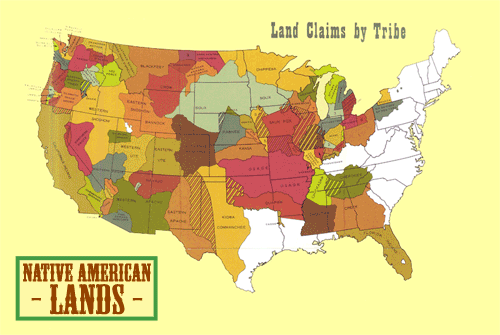
Native American Land Loss Maps
Image by Sam B. Hilliard
Five maps in a chronological series showing post-colonial land cessions in the continental United States and two additional maps showing land claims by tribe and present-day Indian reservations.

McComb History
The McCombLegacies.org website (now archived) was designed to share the history of McComb, Miss., with an emphasis on the stories of working people of all races, women, and young people and how they have strived for equity in labor, civics, education, economics, and the arts.
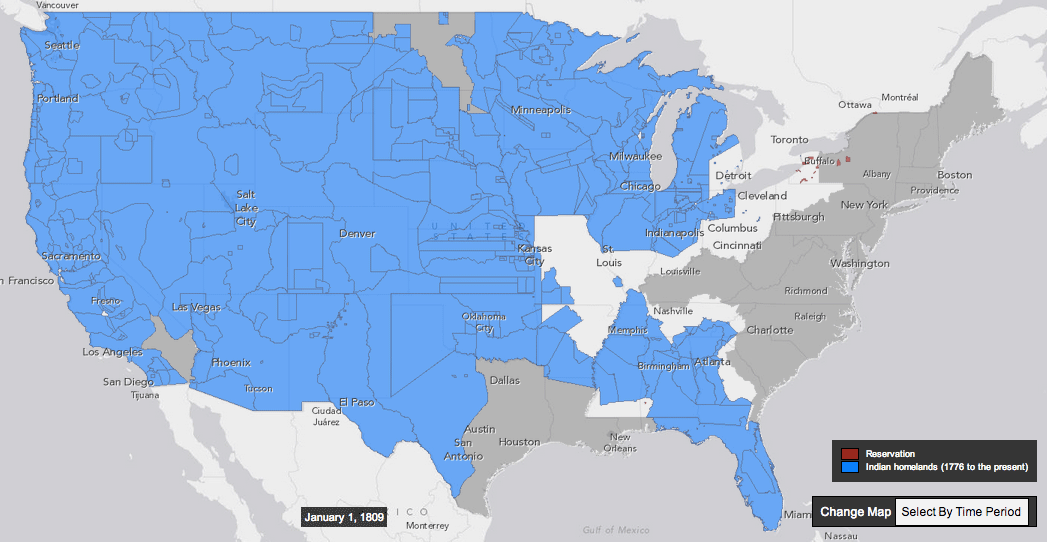
Invasion of America
Interactive Map by Claudio Saunt
This interactive offers a time-lapse vision of the transfer of Indian land between 1776 and 1887.
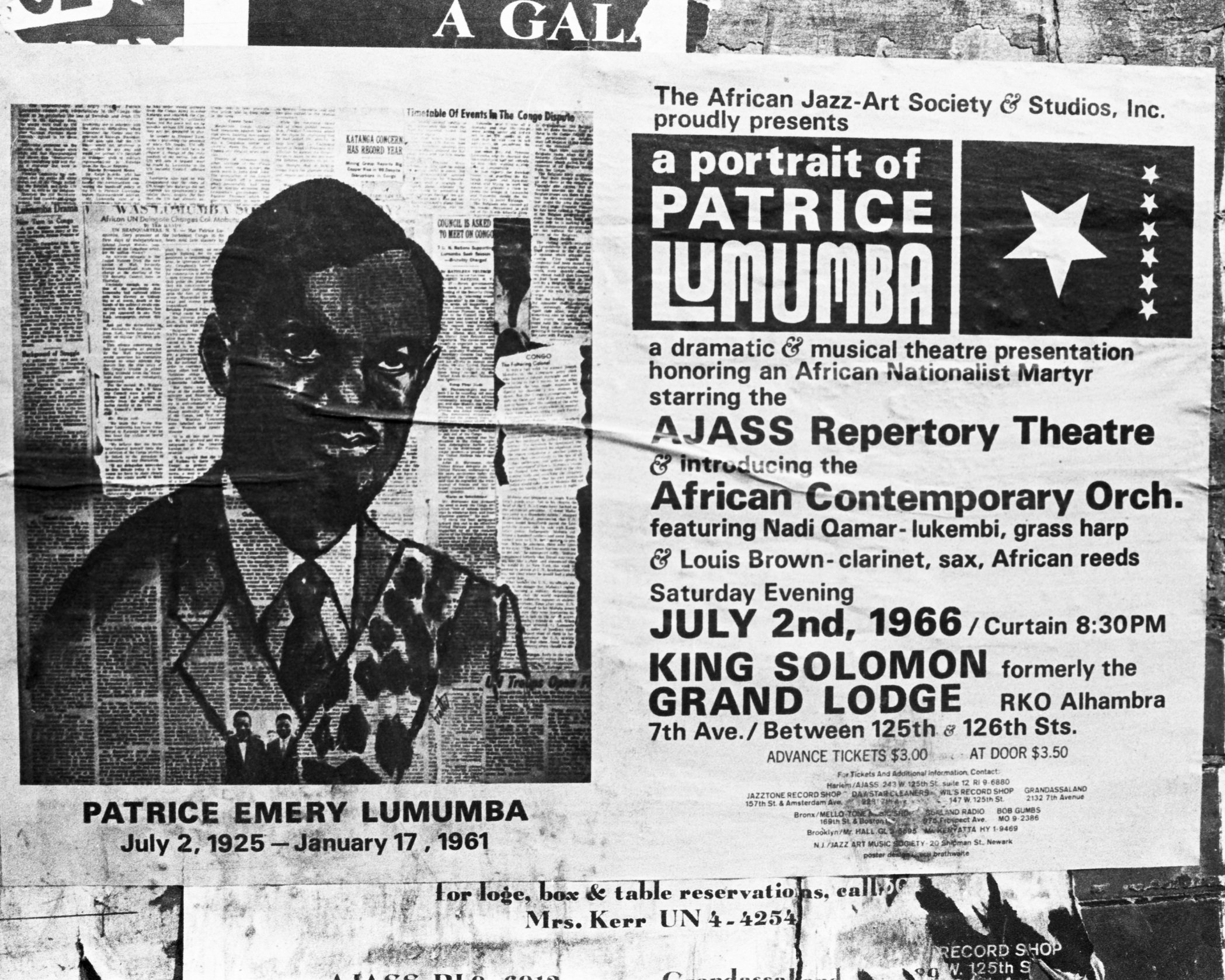
Introduction: Transnational Solidarity
Introduction by Teaching for Change
The Civil Rights Movement in the United States was connected to the international struggle against colonialism. Such well-known African American historians as W. E. B. Du Bois and Carter G. Woodson had long linked U.S. racism and segregation to the colonial system in Africa and other parts of the world.

Selma in Pictures: Socratic Seminar
Lesson by Lynda Tredway
In a media driven age, visual images often provide access to important events and political struggles that may be more immediately accessible to students than written texts. This lesson includes two sets of images from the Selma voting rights struggle that promote critical thinking by SNCC photographer Matt Herron. The steps include observation (reading the text), forming a hypothesis, and dialogue—much like an inquiry model of teaching.

Introduction: Black Power
Introduction by Teaching for Change
If the nonviolence of the Southern Freedom/Civil Rights Movement frightened mainstream people in the United States, the Black Power movement confronted institutional racism with a youthful boldness and fearlessness unseen since enslaved Africans took up arms in the Civil War. In this section, important “founding documents” of the Black Power movement are examined. In addition, the section explores the impact of Black Power on other oppressed peoples in the United States.
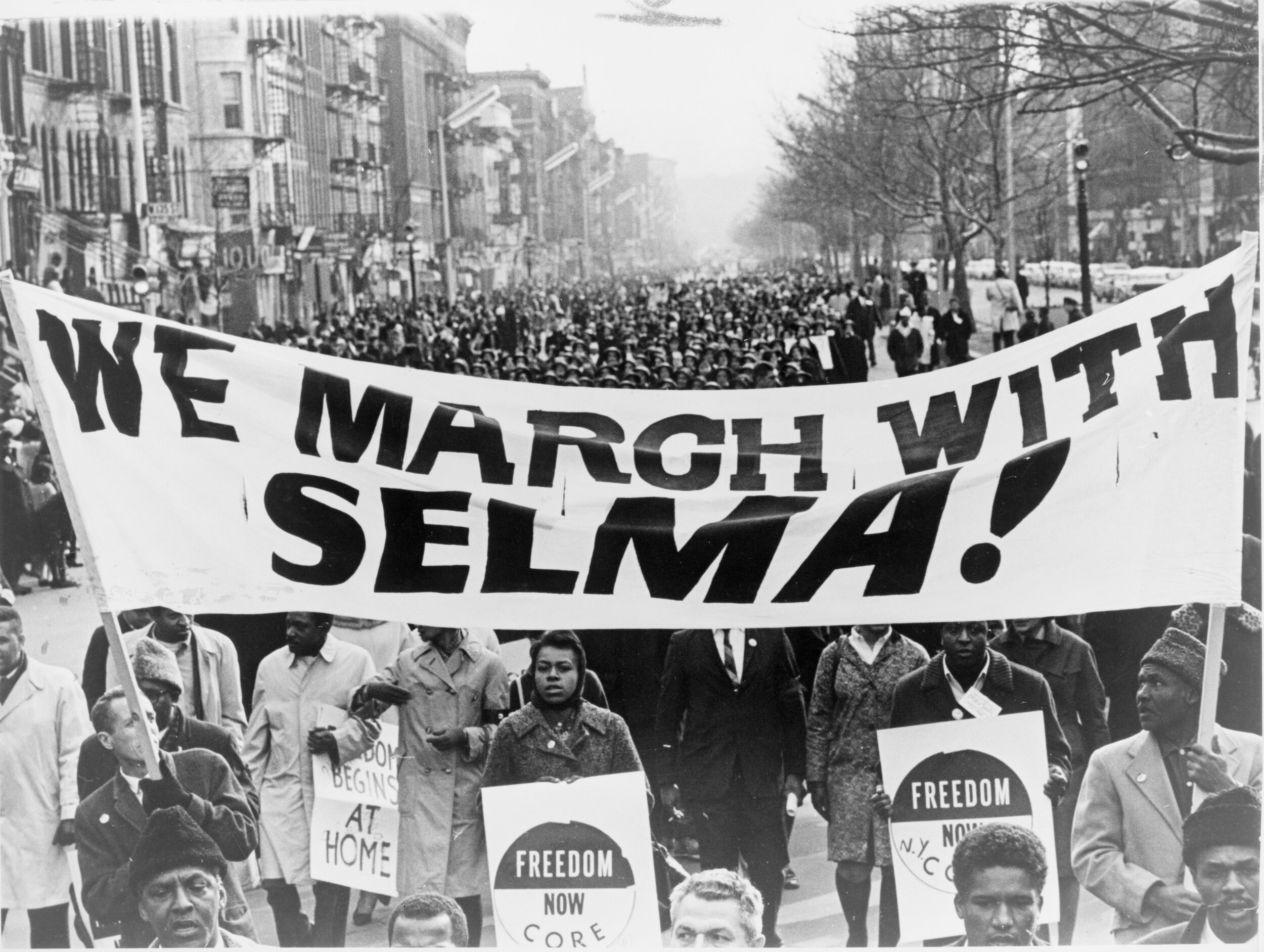
Ten Things You Should Know About Selma Before You See the Film
Reading by Emilye Crosby
Key points in the history of the Selma voting rights struggle to keep in mind as you view the popular film about the Selma-to-Montgomery March.

Digital Collections
Resource by Teaching for Change
A list of digital collections with content about the Civil Rights Movement.
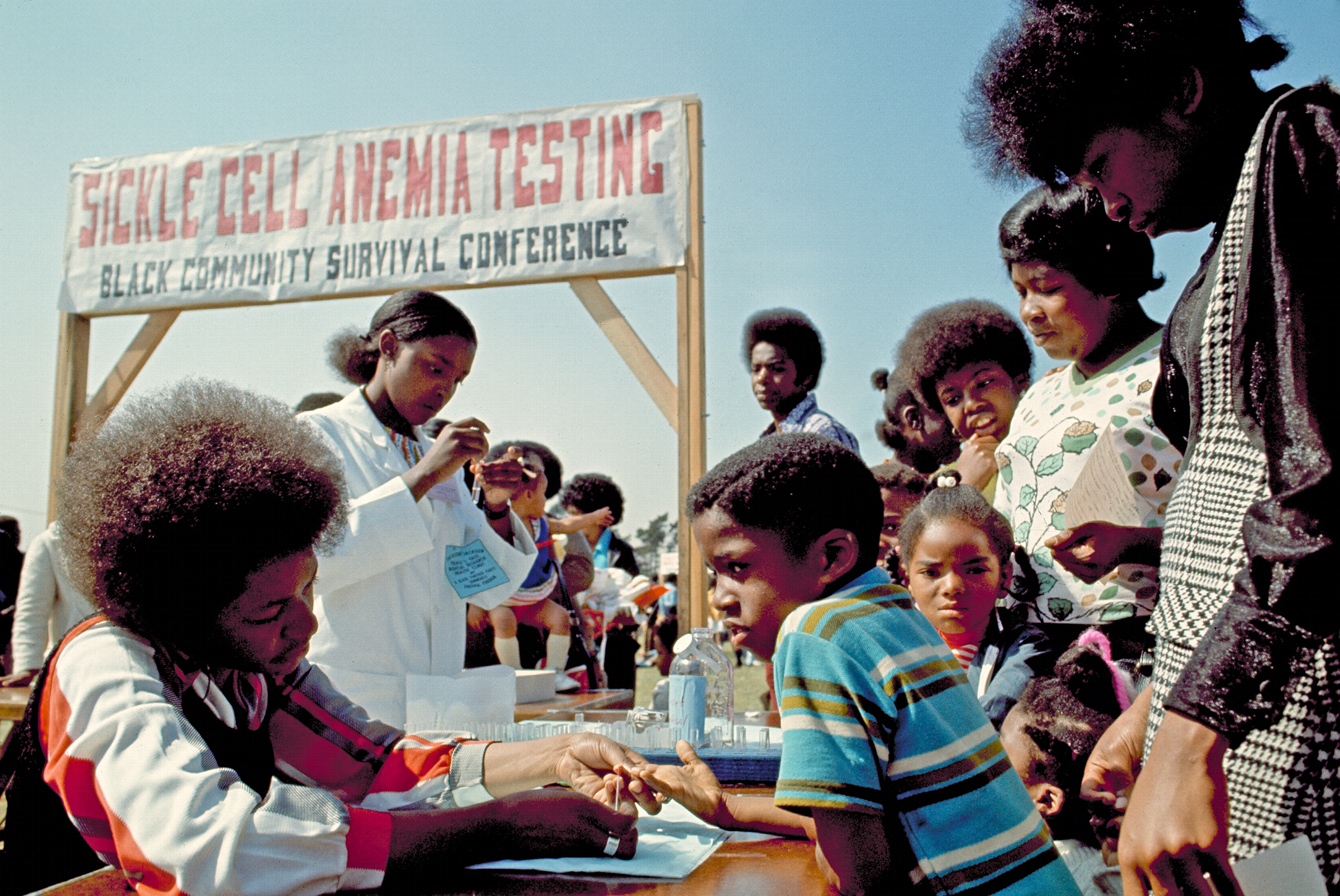
What We Want, What We Believe: Teaching with the Black Panthers’ Ten Point Program
Lesson by Wayne Au
Students read the Black Panther Party's 1972 Ten Point Program to understand the conditions the Panthers were attempting to identify and deal with, then analyze their world today and write their own Ten Point Program for social issues they would like to address.
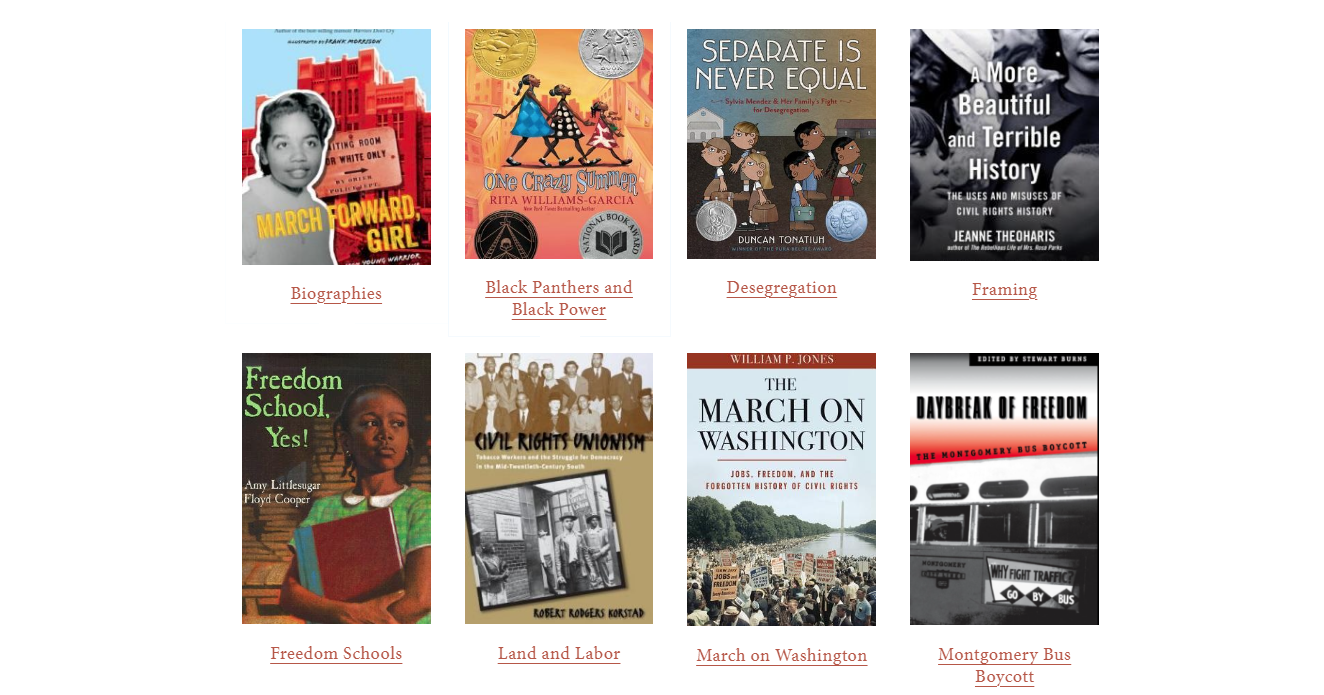
Books About the Civil Rights Movement
Resource by Teaching for Change
Booklists about the Civil Rights Movement by age range and topic.
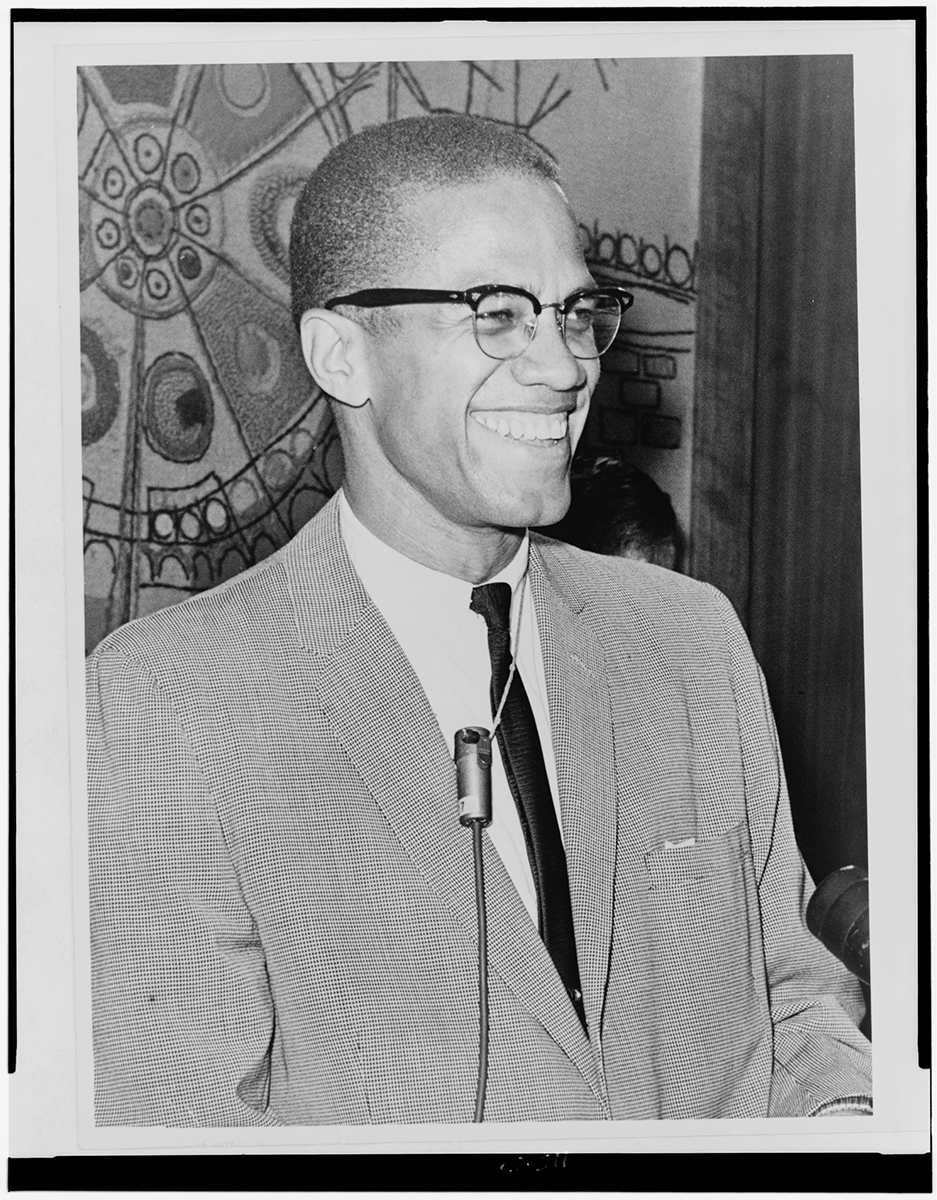
Black Nationalism and Black Pride: The Ballot or the Bullet
Primary Document by Malcolm X
An excerpt from a speech given in Cleveland in April 1964. At this period of his life after Malcolm X (el-Hajj Malik el-Shabazz) had broken with Nation of Islam leader Elijah Muhammad, made a pilgrimmage to Mecca, and begun to develop his own movement, the Organization of Afro-American Unity. He was assassinated on February 21, 1965.
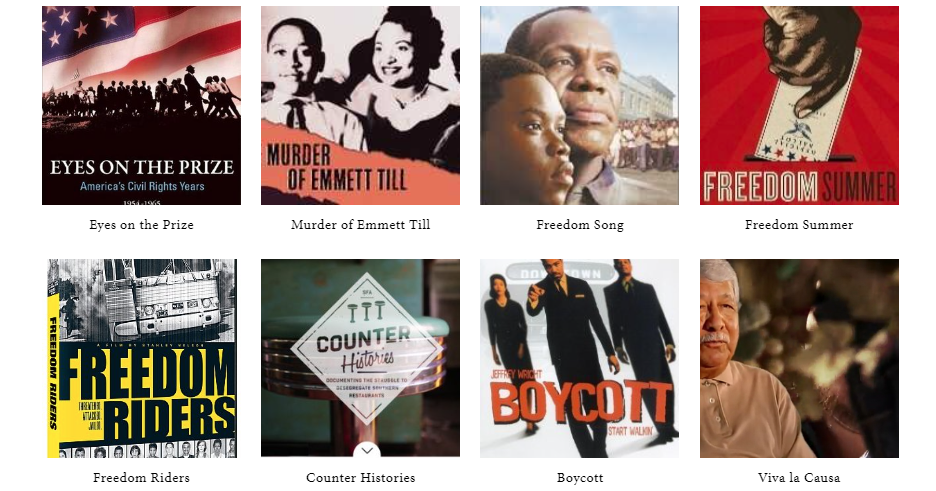
Films About the Civil Rights Movement
Resource by the Zinn Education Project
A selection of films about the Civil Rights Movement.
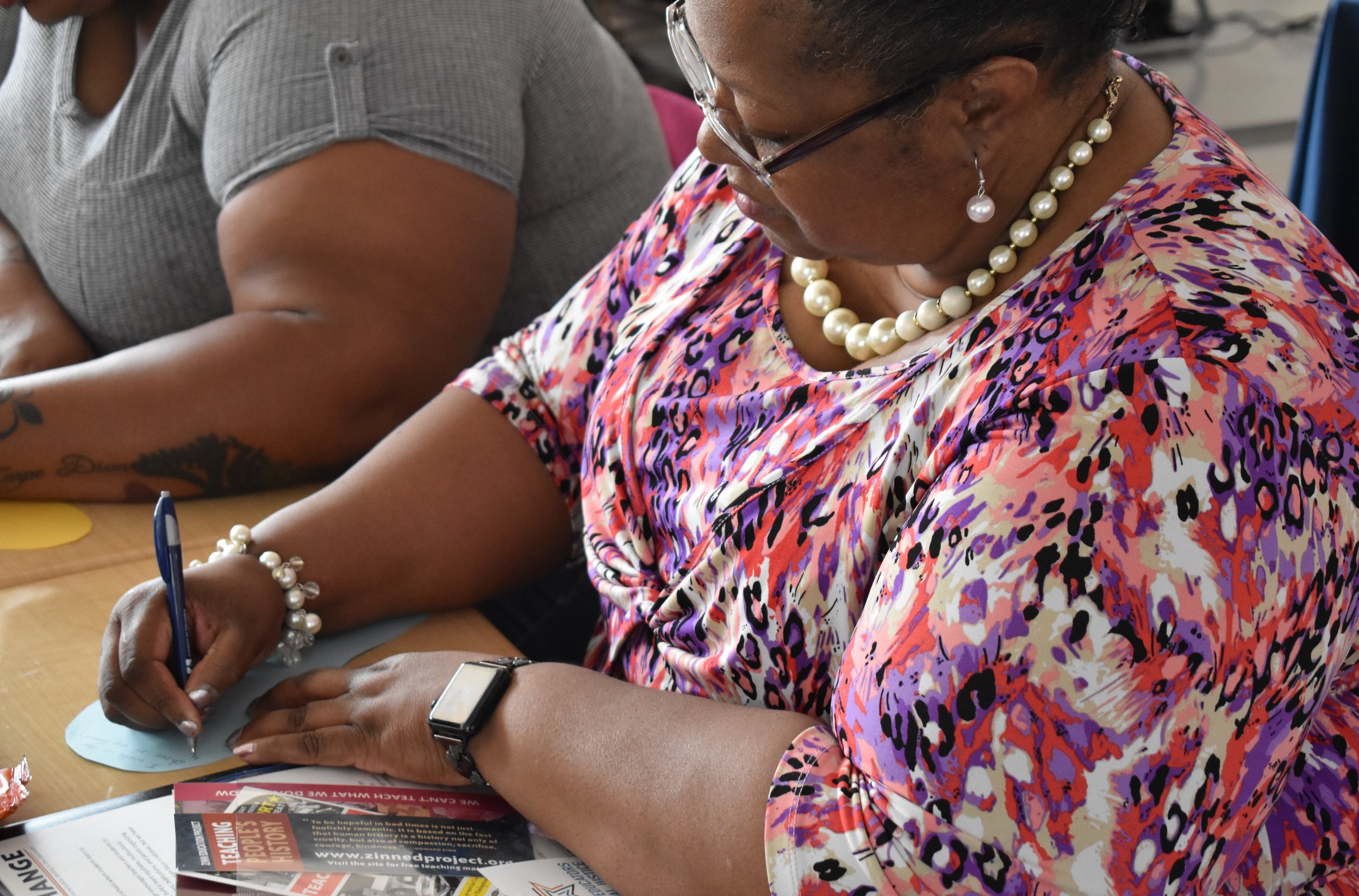
Big Shoes to Fill: A Teambuilding Lesson
Lesson by Deborah Menkart
A community-building activity for teachers or students to write about "in whose shoes I walk for justice" or some way they have walked for justice in their shoes.
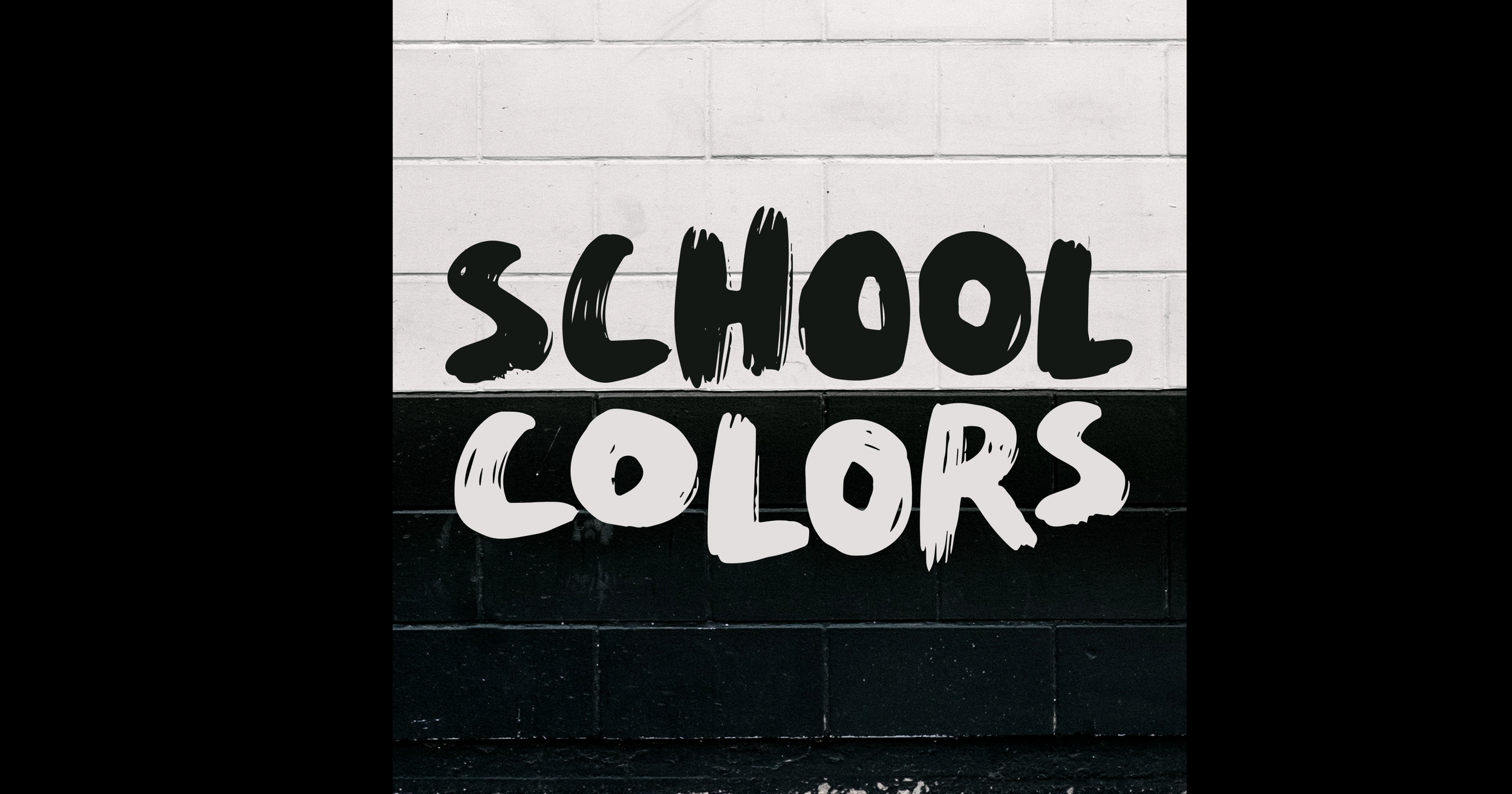
School Colors
Podacast by Mark Winston Griffith and Max Freedman
Season one of the School Colors podcast covers the history of Ocean Hill-Brownsville in Brooklyn where Black and Puerto Rican parents tried to exercise power over their schools and they collided head first with the teachers’ union — leading to the longest teachers’ strike in U.S. history in 1968.
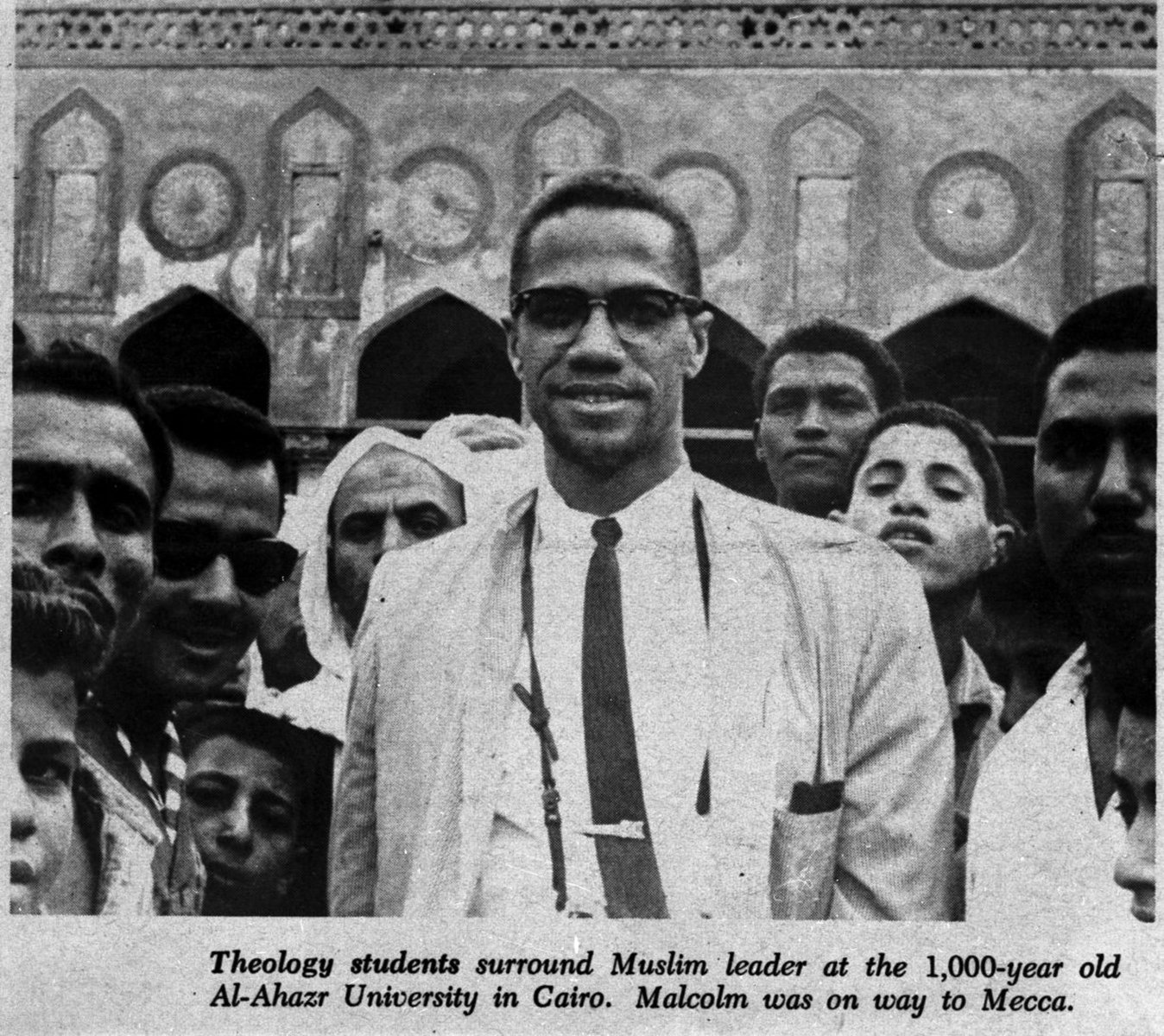
Civil Rights or Human Rights?
Lesson by Andrea McEvoy Spero
Students learn that the goals of the African American Freedom Struggle extended beyond civil rights and were often inspired by the anticolonial struggles of the 20th century. To conceptualize the African American Freedom Struggle as part of a global movement for human rights invites a deeper understanding of the international events of the last century.
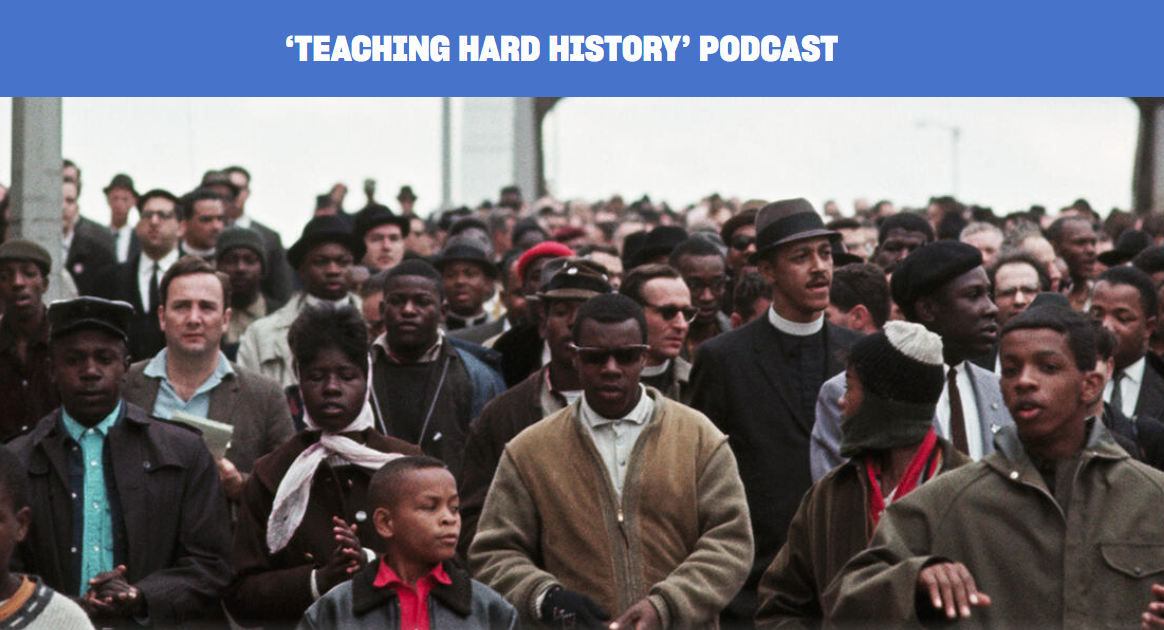
Teaching Hard History
Podcast by Hasan Jeffries
Season 3 of the Learning for Justice Hard History podcast focuses on the Civil Rights Movement.
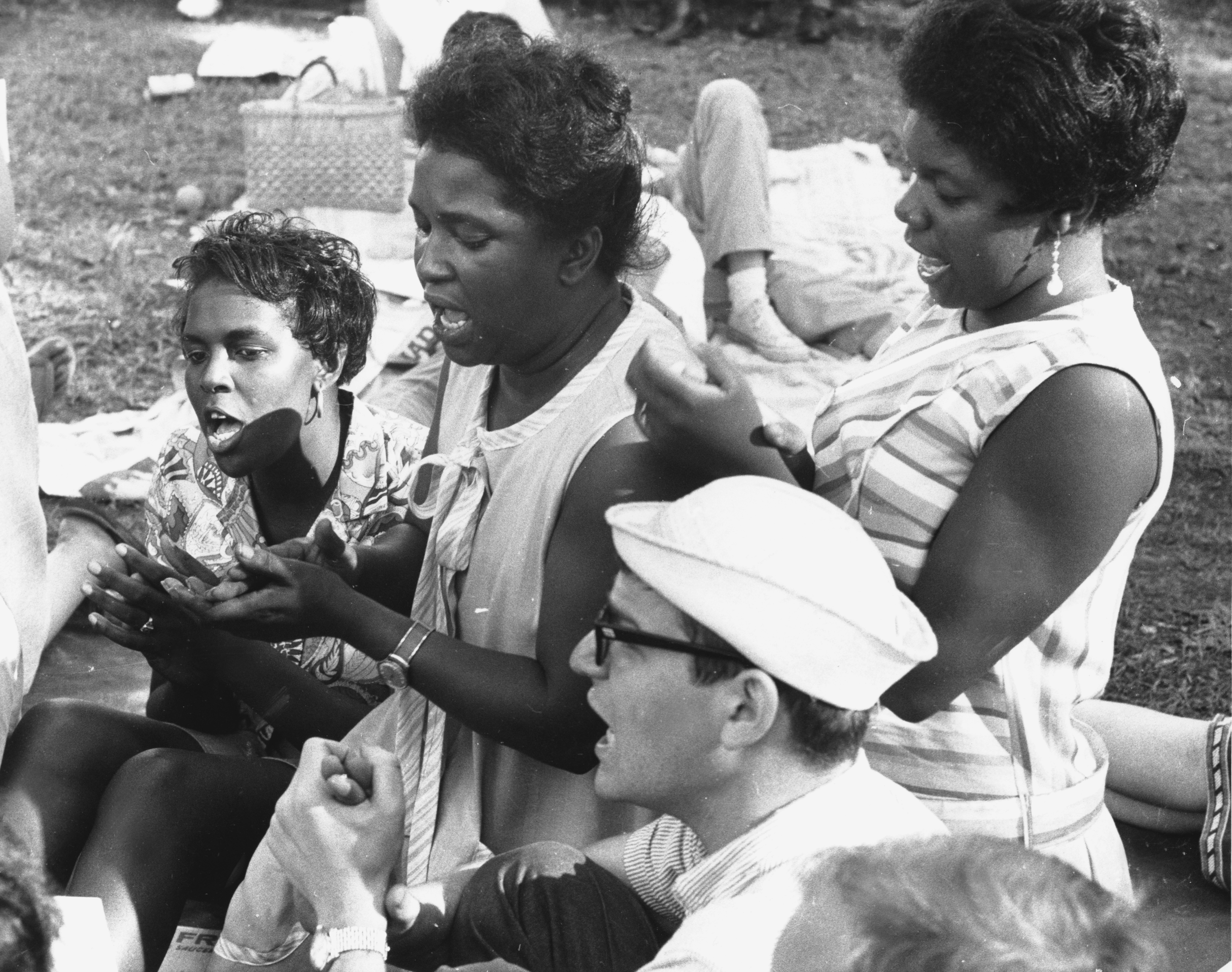
Key Narratives for Teaching About the Civil Rights Movement
Reading by Deborah Menkart and Judy Richardson
A list of key narratives central to an accurate study of the history of the Civil Rights Movement. The list can be used as a guide to critique textbooks, mainstream media, and curricula.
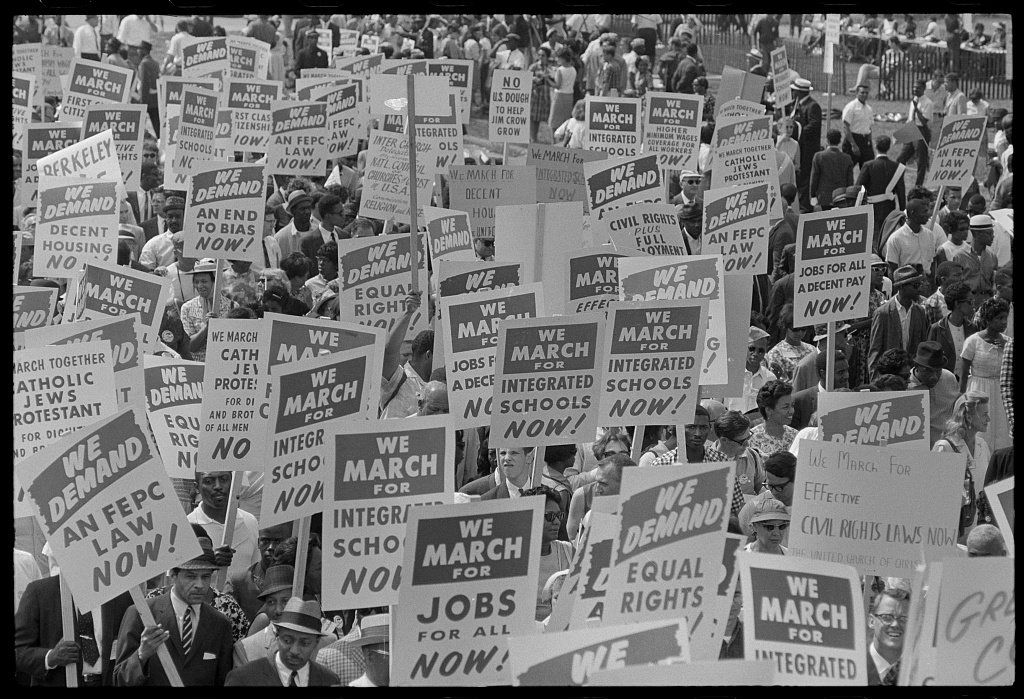
March on Washington Hidden History Quiz
Quiz by Teaching for Change
When most people think of the 1963 March on Washington for Jobs and Freedom, what comes to mind is Dr. Martin Luther King Jr.’s iconic statement, “I Have a Dream.” In truth, there was much more to this historic event than these four words in King’s speech. Teaching for Change designed this quiz about the 1963 March on Washington for Jobs and Freedom to challenge assumptions, deepen understanding, and inspire further learning.

Comfort Food: A Lesson for Child of the Civil Rights Movement
Lesson by Paula Young Shelton
Food played an instrumental role during the Civil Rights Movement, bringing people together to plan, gain strength, and organize. Community members played an important role feeding volunteers. This lesson is a companion to the picture book, Child of the Civil Rights Movement.
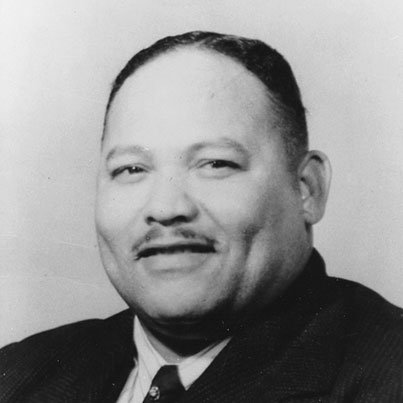
Murder of Reverend George W. Lee
Reading by Zinn Education Project
Rev. George Washington Lee, one of the first African Americans registered to vote in Humphreys County, Mississippi since Reconstruction, used his pulpit and his printing press to urge others to vote. He was murdered on May 7, 1955.

Transportation Protests: 1841 to 1992
Reading by Julian Hipkins III and David Busch
The struggle for the desegregation of transportation has a long history in the United States. This timeline outlines some key individuals and organizations who took a stand against segregated transit.
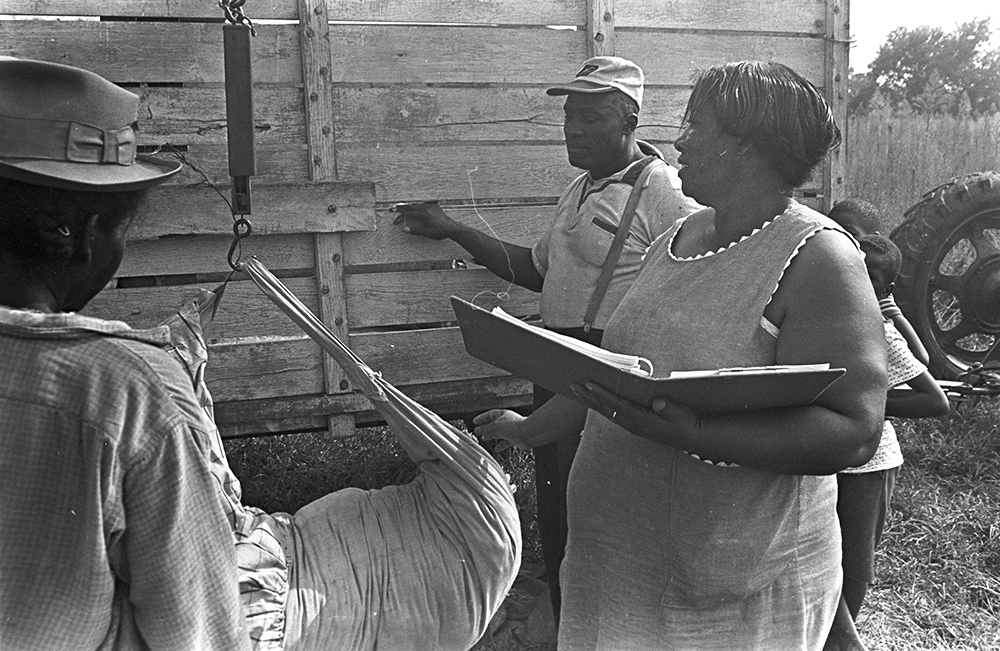
Introduction: Labor and Land
Labor and land have always been central to the struggle for civil and human rights in the United States. In this introduction, we share a few examples.
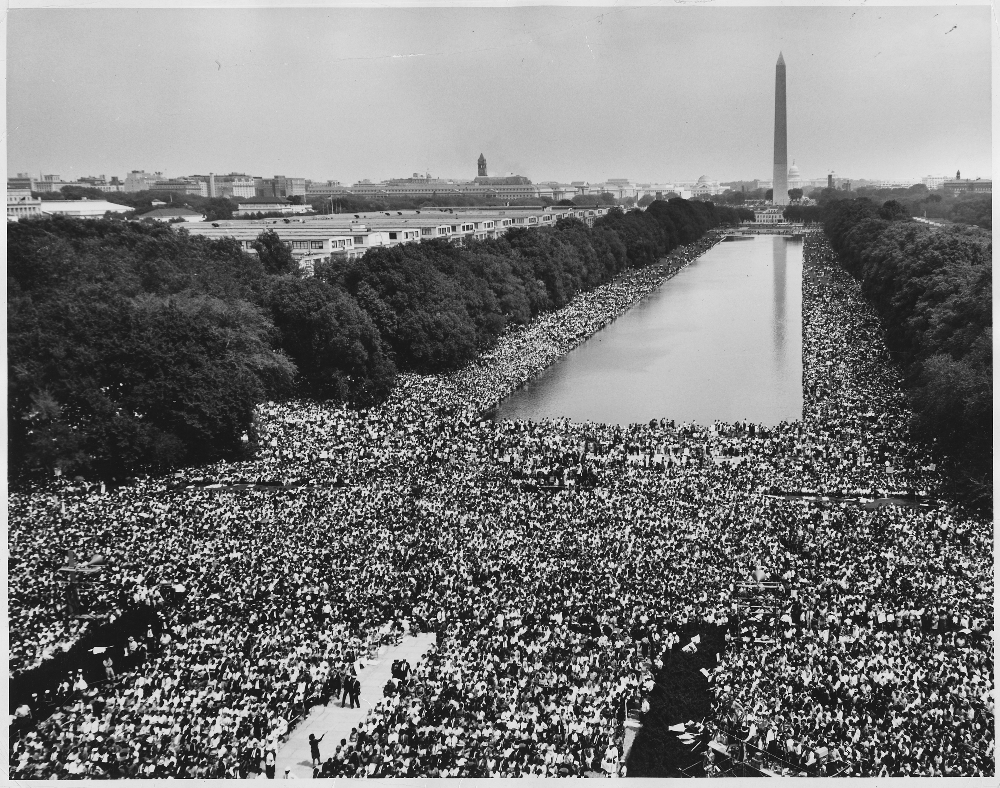
March for Jobs and Freedom: Calculating the Crowd
Lesson by Louise Bock, Susan Guengerich, and Hope Martin
In this lesson, students use representations and computations to estimate the crowd at the 1963 March on Washington. Students strengthen critical thinking and mathematical skills through investigation and problem solving, and gain a deeper understanding of the issues related to protest demonstrations and media representations of events.
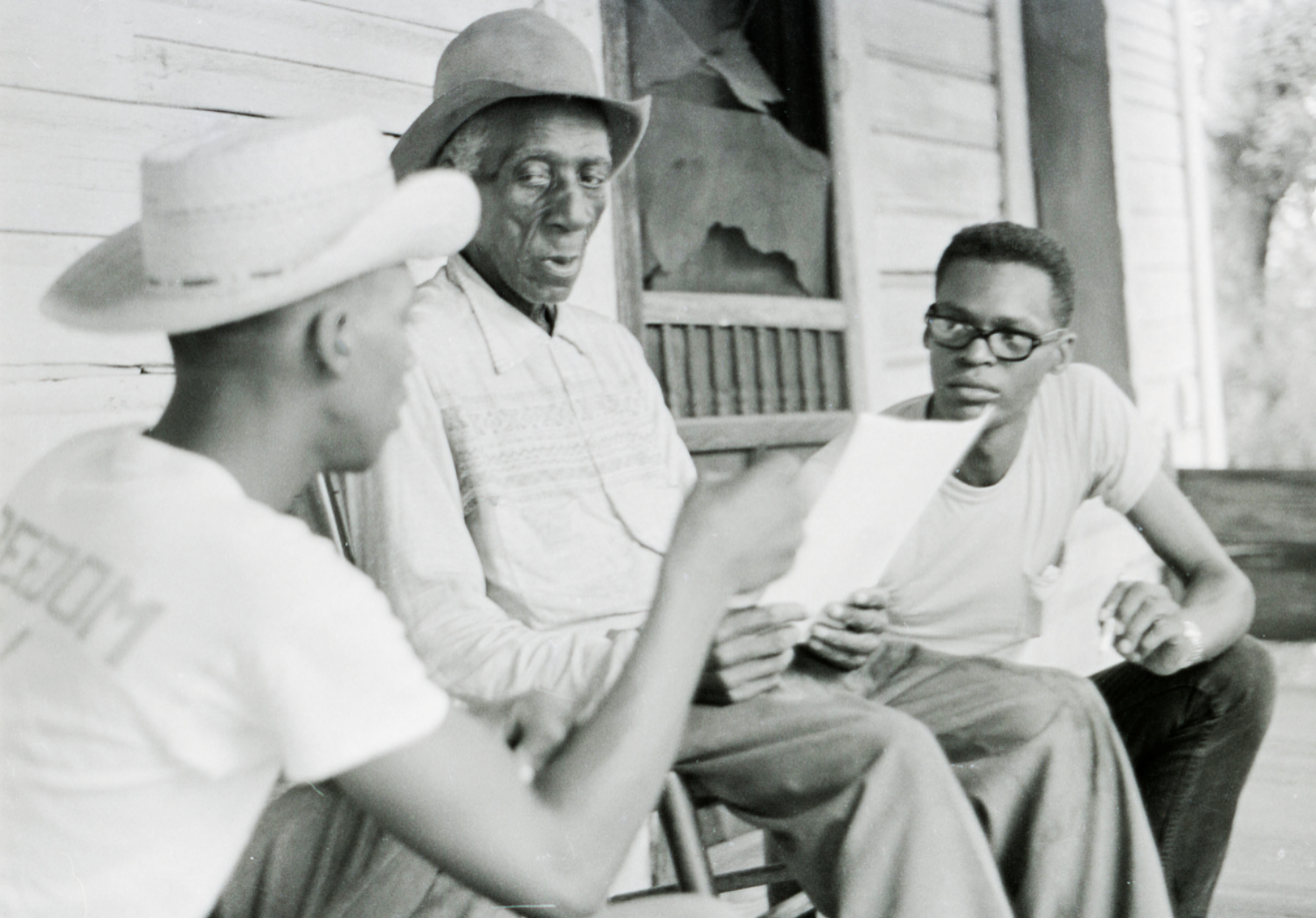
Introduction: Voting Rights
Learning the full history of the fight for voting rights is especially important today, in light of the 2013 Shelby v. Holder U.S. Supreme Court decision that struck down the 1965 Voting Rights Act provisions requiring certain states to obtain federal preclearance before changing voting laws.
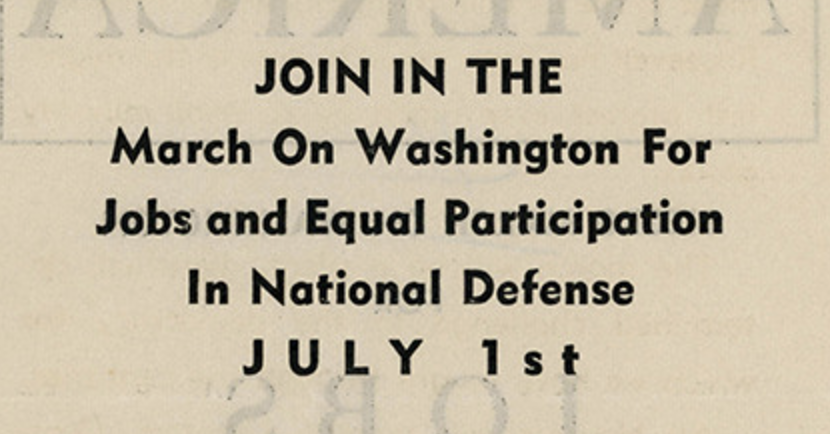
Call to Negro America to March on Washington for Jobs and Equal Participation in National Defense, 1941
Primary Document by A. Philip Randolph
In 1941, A. Philip Randolph, the president of the Brotherhood of Sleeping Car Porters, issued a call to African Americans to fight the unjust conditions in the workforce with a March on Washington for Jobs and Freedom. The threatened mass protest forced President Franklin Roosevelt to sign Executive Order 8802 in June 1941, banning discrimination in the federal government and the defense industry. On June 28, A. Philip Randolph postponed the march.
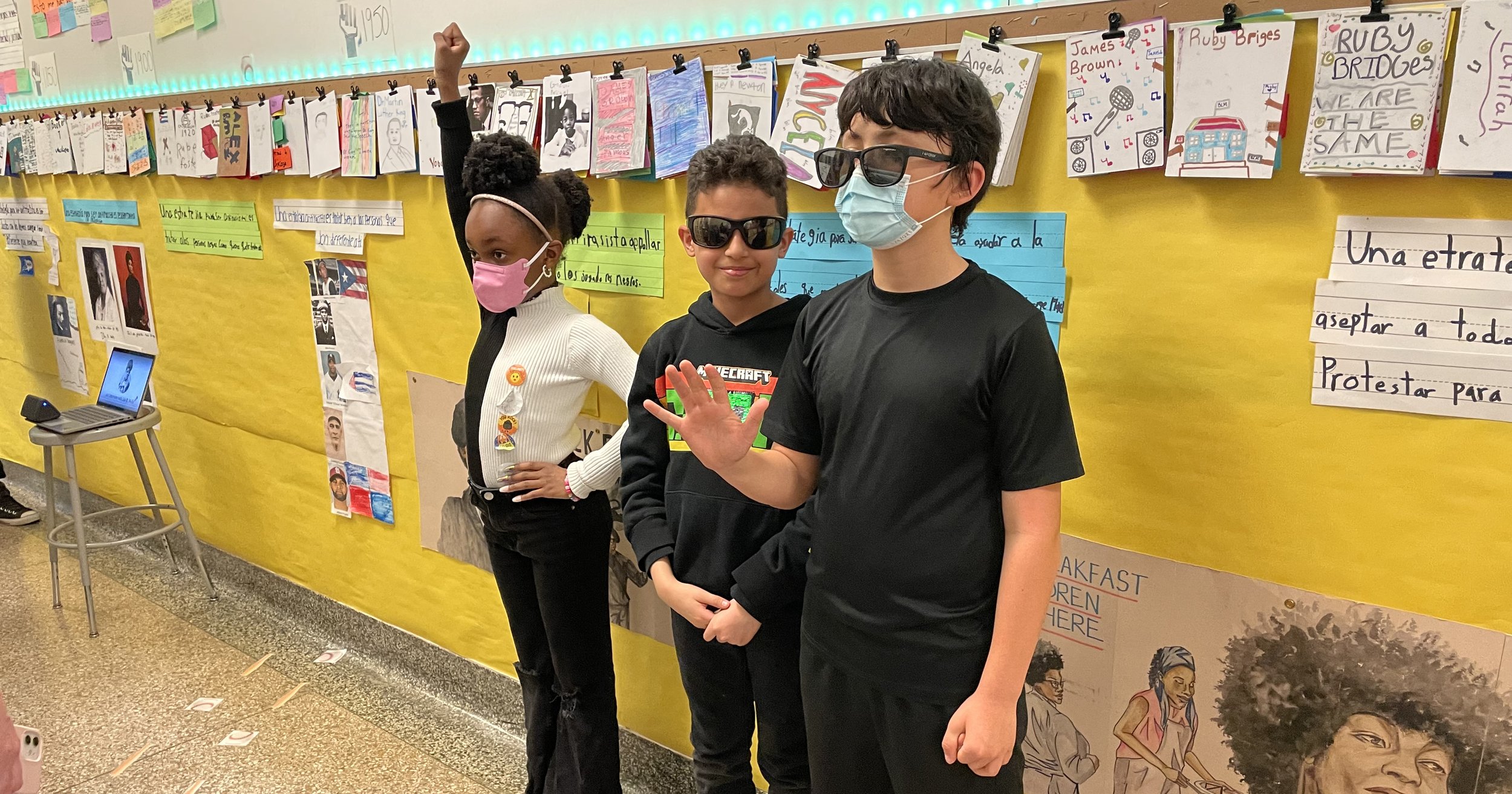
Introduction: Student Engagement
Introduction
This section highlights ways that teachers and young people can work together to learn about and document Civil Rights Movement history — and apply it to their lives today.
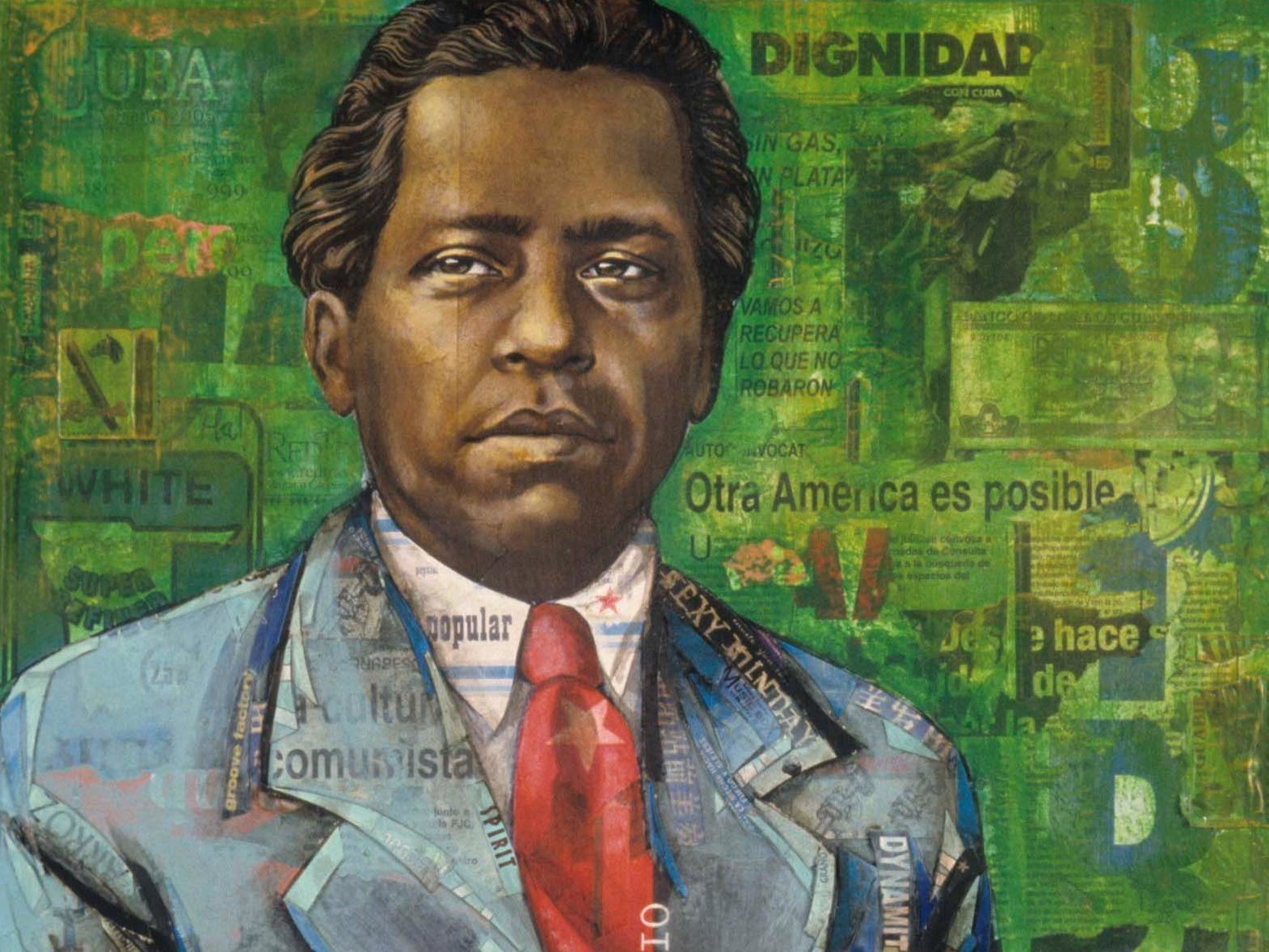
Nicolás Guillén: The Struggle against Two Racisms
Reading by Carmen Gómez García
In this essay, excerpted from a chapter on the history of Cuban social poetry, Gómez García introduces the reader to Guillén’s poetry about racism in the United States. This is an ideal text for classes on poetry, Spanish, 20th-century U.S. history, and Latin American history.

Hidden in Plain Sight: Martin Luther King Jr.’s Radical Vision
Lesson by Craig Gordon
This lesson helps students penetrate the curtain of clichés and lies the corporate media have erected around Martin Luther King Jr. in order to make him “safe” for public consumption.

Murder Mystery: Shining a Light on the Story That the Newspapers Left Out
Lesson by Allyson Criner Brown, Deborah Menkart, and Jenice L. View
The murder of Mississippi voting rights activist Herbert Lee, and subsequent murder of witness Louis Allen, were key events in the history of the modern Civil Rights Movement. However, they were barely mentioned in the local press at the time and the story is missing from textbooks and public memory today.
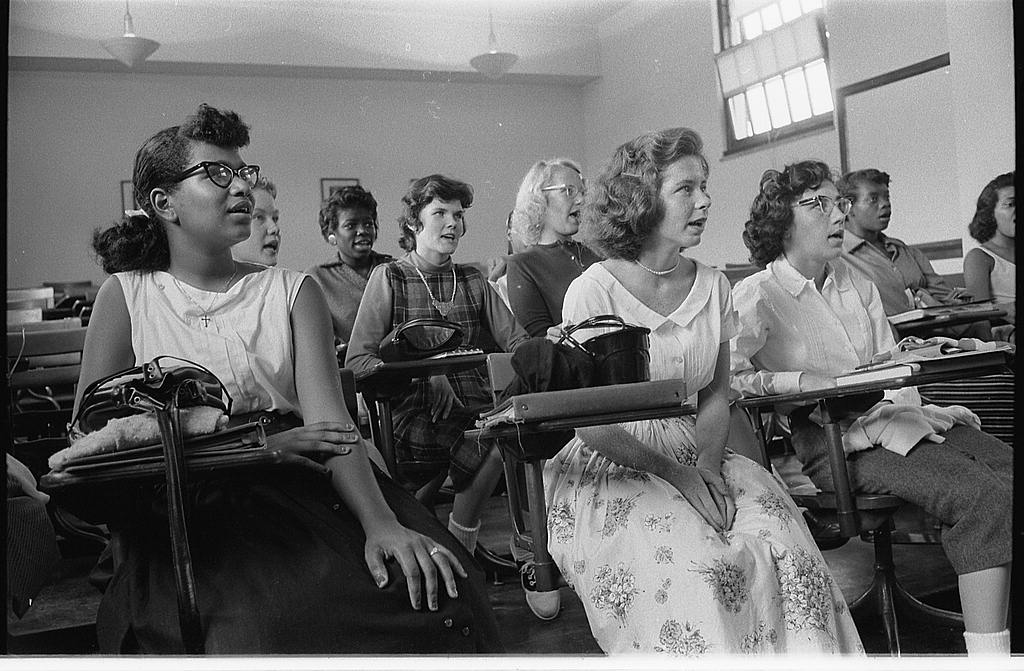
Introduction: Desegregation
Introduction
Throughout U.S. history, communities of color fought for their right to equal access and for human dignity and equity. Desegregation in public schools, transportation, and other accommodations was more than court cases and legal victories. Desegregation was a long struggle led by students, parents, and every day citizens. . . . They were not interested in integration, or the desire to mingle socially or otherwise with whites, but to break and reconstruct institutions that forced people of color into positions of poverty, illiteracy, and political powerlessness.
